We are planning to support the integration of remote login forms to our application. For this I provide a CORS enabled API call that sets an authentication cookie for our application. The ajax call succeeds and the response contains the cookies, but once I redirect the browser to our application, the cookie is not contained anymore.
My setup consists of the login form running on http://myhost/login.html, the API login call is running on http://myapp:8080/login (ASP.net Web Api) and the application itself on http://myapp/app (ASP.net MVC)
The ajax call looks like this:
var xhr = new XMLHttpRequest();
xhr.open('POST', 'http://myapp:8080/login', true);
xhr.withCredentials = true;
xhr.setRequestHeader('Content-Type', 'application/json');
xhr.onload = function() {
var resp = xhr.responseText;
if(xhr.status == 200) {
document.querySelector('#status').innerHTML = 'Login successful <a href="http://myapp/app">Go to MyApp</a>';
}
else {
document.querySelector('#status').innerHTML = 'Login Failed : ' + xhr.statusText + '<br /><pre>' + xhr.responseText + '</pre>';
}
};
xhr.send(JSON.stringify({ UserName: 'User', Password: 'Pass' }));
And the server responds:
Access-Control-Allow-Credentials:true
Access-Control-Allow-Origin:http://myhost
Content-Length:0
Date:Fri, 23 Jun 2017 08:49:04 GMT
Server:Microsoft-HTTPAPI/2.0
Set-Cookie:MyAppToken=SecretToken; domain=myapp; path=/
When I directly afterwards investigate on the cookies (Google Chrome), I can see that the cookie was set with the correct domain and content. But upon page reload or redirect to http://myapp/app the cookie is not set anymore and also my planned auto-login is not kicking in.
Is there something else I need to consider when I want the MyAppToken to be available on the app after the AJAX call? I do not need access to the MyAppToken cookie on myhost it only needs to be available for myapp to do the login.
Update (2017-07-19)
With only changing our test environment the system described above is working without problems. It seems likely that certain security constraints are influencing whether the browser transmits the cookie to the target application. Especially the 3rd-party cookie policies mentioned by Dennis C. sounds reasonable.


